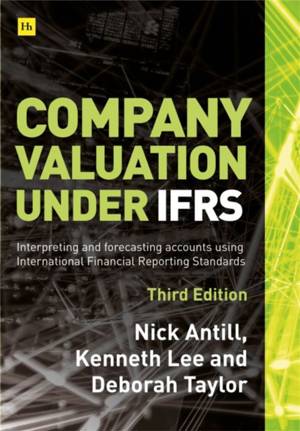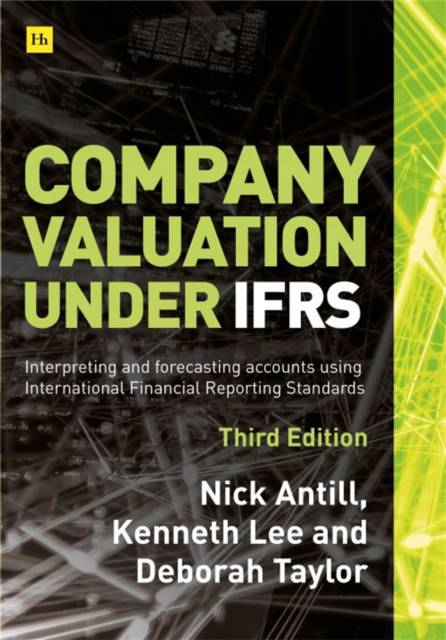
Bedankt voor het vertrouwen het afgelopen jaar! Om jou te bedanken bieden we GRATIS verzending (in België) aan op alles gedurende de hele maand januari.
- Afhalen na 1 uur in een winkel met voorraad
- In januari gratis thuislevering in België
- Ruim aanbod met 7 miljoen producten
Bedankt voor het vertrouwen het afgelopen jaar! Om jou te bedanken bieden we GRATIS verzending (in België) aan op alles gedurende de hele maand januari.
- Afhalen na 1 uur in een winkel met voorraad
- In januari gratis thuislevering in België
- Ruim aanbod met 7 miljoen producten
Zoeken
Company Valuation Under Ifrs - 3rd Edition
Interpreting and Forecasting Accounts Using International Financial Reporting Standards
Nick Antill, Kenneth Lee, Deborah Taylor
Hardcover | Engels
€ 90,45
+ 180 punten
Omschrijving
Revised and updated.
The influence of International Financial Reporting Standards (IFRS) on accounting across the world is stronger than ever. Most importantly, this stems from the mandatory adoption of IFRSs in many parts of the world, including Europe, Canada, Australia, Brazil and, with some relatively small exceptions, China. Additionally, foreign registrants in the US are also permitted to use IFRS by the SEC. The impact of IFRSs also extends to accounting developments as the IASB and the FASB work closely together to formulate new standards such as those recently issued on leasing and revenue recognition. It is clear that investors, analysts and valuers need to understand financial statements produced under IFRS to feed in to their valuations and broader investment decisions. Written by practitioners for practitioners, the book addresses valuation from the viewpoint of the analyst, the investor and the corporate acquirer. It starts with valuation theory: what is to be discounted and at what discount rate? It explains the connection between standard methodologies based on free cash flow and on return on capital. And it emphasizes that, whichever method is used, accurate interpretation of accounting information is critical to the production of sensible valuations. The authors argue that forecasts of cash flows imply views on profits and balance sheets, and that non-cash items contain useful information about future cash flows - so profits matter. The book addresses the implications for analysis, modelling and valuation of key aspects of IFRS, all updated for recent developments, including: - Pensions- Stock options
- Derivatives
- Provisions
- Leases
- Revenue recognition
- Foreign currency The text also sets out the key differences between IFRS and US GAAP treatments of these issues, in addition to their implications for analysis. A detailed case study is used to provide a step-by-step valuation of an industrial company using both free cash flow and economic profit methodologies. The authors then address a range of common valuation problems, including cyclical or immature companies, as well as the specialist accounting and modelling knowledge required for regulated utilities, resource extraction companies, banks, insurance companies, real estate companies and technology companies. Accounting for mergers and disposals is first explained and then illustrated with a detailed potential acquisition.
Specificaties
Betrokkenen
- Auteur(s):
- Uitgeverij:
Inhoud
- Aantal bladzijden:
- 408
- Taal:
- Engels
Eigenschappen
- Productcode (EAN):
- 9780857197764
- Verschijningsdatum:
- 11/02/2020
- Uitvoering:
- Hardcover
- Formaat:
- Genaaid
- Afmetingen:
- 170 mm x 244 mm
- Gewicht:
- 848 g

Alleen bij Standaard Boekhandel
+ 180 punten op je klantenkaart van Standaard Boekhandel
Beoordelingen
We publiceren alleen reviews die voldoen aan de voorwaarden voor reviews. Bekijk onze voorwaarden voor reviews.









